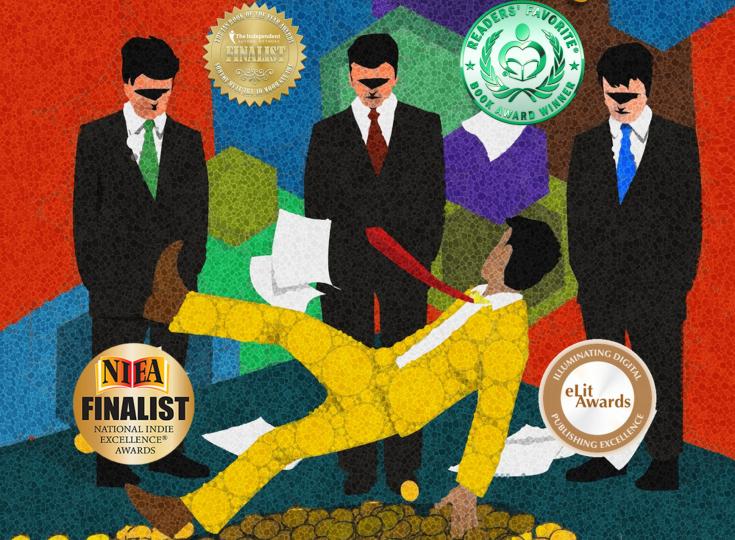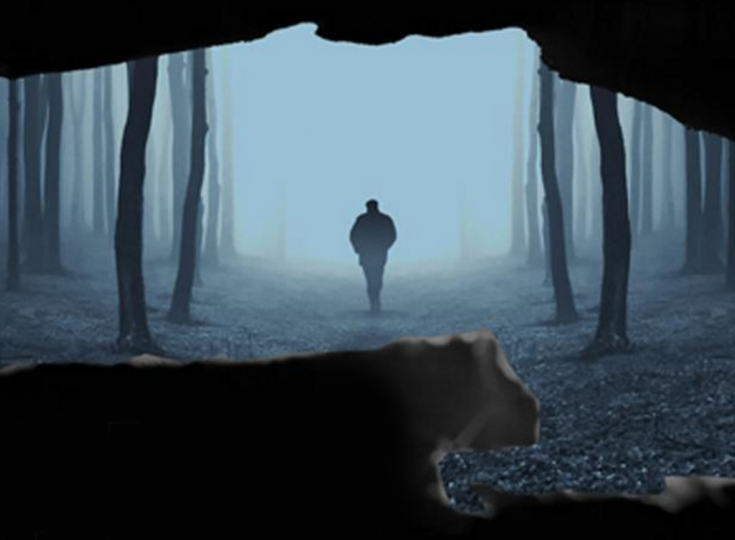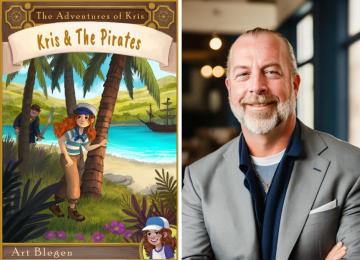Pawan Mishra - Different Perspective on Office Work

Pawan Mishra possesses not only the ability to see the humor in most situations, but also has a very interesting perspective on life, as is evident in his widely acclaimed debut novel, Coinman. Inspired by the small town in India where he grew up and observing the oddities of office politics, Mishra wrote this parody, which immediately became a multi-awardwinning book. As our author of the day, Mishra talks about his childhood, how he created Coinman and expresses some of his views on office culture.
Please give us a short introduction to what Coinman is about
Prejudice takes a rare form when a clerk called Coinman can’t stop jingling the coins in his pocket. It’s a seemingly harmless addiction, but it’s one that comes to rule his life and begins to invite the wrath of virtually everyone around him.
An eccentric tale set in a small town in northern India, Coinman is a modern-day parable laced with pithy wisdom and psychological insight into human nature--a clever parody of the dynamics of office politics and groupthink. At times, surreal, this satirical story depicts, with a high dosage of ingenuity and sarcasm, how even mature, sensible adults can callously inflict emotional damage upon the most vulnerable.
What inspired you to write this book?
Growing up in a family of storytellers, I was quite captivated by the art of storytelling since my very early childhood. My grandfathers, on both the paternal and maternal sides, and their respective brothers, were great storytellers. When they visited our house at Aligarh in India, or when we visited them during our summer vacations, the kids in the family looked forward to each night to hear bedtime stories that were never written down but were passed along, generation to generation.
As I entered my teens, I started writing—only about very odd topics that one would think not much could be written about—because that way the challenges satisfied the creative writer inside me. A few in my circle of friends read my writings and often challenged my creativity with a topic that might be “boring”: a chair, a mosquito, a car repair shop; and I would take it upon myself to write a story.
It was under one of such creative writing pursuits that I started on Coinman in year 2003—to write a story about someone’s habit of jingling coins in his pocket. As I started writing, I realized that the subject needed a more elaborate treatment—it thus had turned into a full-length novel by the time of its completion in 2007. I had no plans to publish it until early 2015.
What frustrates you most about office life and corporate culture?
To be honest, I have loved much of my time at office. After working with a number of firms, leading large global teams, and traveling to many countries for work, the different ways people apply to achieve their goals at work comes as something natural to me—it not only throws new exciting challenges everyday but also makes me continue to learn and revise my understanding of the world around me.
Having said that, few things that I wish could be less prevalent in corporate culture are: The Halo Effect, the groupthink, the “with me or against me” attitude, too many structural layers to have effective communication, problems take too long to get discovered and longer to solve, conflict avoidance, wrong people in leadership, multiple single point of failures, losing sight of what’s best for the firm because of territorial fights, the myth that good public speakers are good leaders (leadership of introverts is not very visible/ appreciated).
Why did you name your main character Coinman?
The main character has a habit of jingling coins in his pocket. His actual name was Kesar, but his colleagues nicknamed him Coinman. That way they could have a joke constantly living in the antihero they had invented.
In a way, this is also the Kafkaesque part of the book where one of the harsh truths of life is depicted, in an exaggerated manner: how little control one has on one’s own life.
Your book also focuses on how work can cause people (Coinman and his wife) to drift apart. Why do you think is this an important issue?
This is an extremely important issue. With the performance expectations only going higher at work, and the constantly increasing demand on personal time at home resulted by the outrageous increase in the number of things one needs to constantly engage and juggle with, the past models of “striking a balance” no longer fit the mold. While we are in the most interesting phase of the workplace evolution, the fact remains that happiness at work increases the chances of happiness at home, and vice versa. A lack of contentment on one side is very likely to cause a misery on the other side—thus opening up a possibility of trapping the person in a vicious cycle.
Why did you pick a small town in India as the backdrop for this book?
Having spent first 20 years of my life in the small town of Aligarh in India, I had the privilege of seeing life in a small city very closely. Wandering through every possible narrow street in the city and interacting with every possible type of character opened up a beautiful inner world in my mind that found a way to open itself through this book.
Coinman was your debut novel. What was the experience like and what surprised you the most about the feedback from the readers?
It has been a great learning experience—specifically in terms of better understanding of the readers. One thing that surprised me the most about the feedback from the readers was the polarity of their views. Very often, the common readers judge a book on extremes—they either like it a lot, or hate it.

Your book explores how people behave strangely when part of a group or clique. Why do you think do humans have this tendency?
It goes back to the psychological phenomenon of groupthink—at the core of which is the desire for harmony and conformity within the group—which results in an irrational and, at times, socially impaired behavior. The worst part is: this often suppresses the common sense desire to critique a position, thus preventing the involved people from entertaining or expressing an unpopular opinion. Now one would think why the people in such dysfunctional group would think they would get away—this is because of their illusion of invulnerability—where the sense of their security can’t be completely false because of a larger effort for anyone to counter the group.
Some of your scenes feel exaggerated compared to what happens in real life. Was this exaggeration deliberate?
Absolutely yes. This book is deliberately written as an exaggerated parody—as a device to help deal with a range of social issues without having to preach about them—thus allowing to weave the story with ingenuity and sarcasm in a manner that’s simultaneously hilarious and tragic.
As a matter of fact, it always gives me an immense artistic satisfaction to strike a fusion of a dreamlike world with the reality. The richness of the world around us constantly inspires me to write in a way that's humorous and symbolic at the same time. The small spontaneous things that constitute this beauty, sometimes bright and dark at other times, have so much left unsaid still that I find myself up against an immense number of doors. Coinman was one of such doors which opened several others as soon as I knocked on it.
Why did you decide to use comedy and satire to tell the story?
As I said earlier, this novel was a result of one of my creative writing pursuits—to write about an otherwise boring habit of someone of jingling coins in his pocket. As I took this on, I realized that using comedy and satire was going to make it even a bigger challenge to write. You can make people cry with only a small fraction of the effort it takes to make them laugh.
Besides writing, what other secret skills do you have?
I have been a leader for more than a decade in the technology and finance industries. I’ve led several large and highly complex initiatives involving a large array of businesses, systems, and global teams. I believe in high collaboration and in motivating people so that they can offer their best.
I am very passionate about animation movie making—and have been working on a couple of movies. I have also played rhythm guitar in corporate bands. I absolutely love music.
How much of your own experiences of life did you incorporate into this book?
A lot. While a significant part of the book is the creative expedition of my mind—fully invented for the book, a number of situations in the book were inspired by true events and true people I had come across in life.
What are you working on right now?
For past one year I’ve been thinking over four different ideas and I think I am close to settling on one. It’s story of a man stuck in his house for weeks without food, all by himself, because if he comes out he is going to be killed. I would share more details once it’s final.
Where can our readers discover more of your work or interact with you?
One place they can go is my home page: www.pawanmishra.com
They can find links to all the relevant places there—my blog, my social accounts, my latest news, etc.






